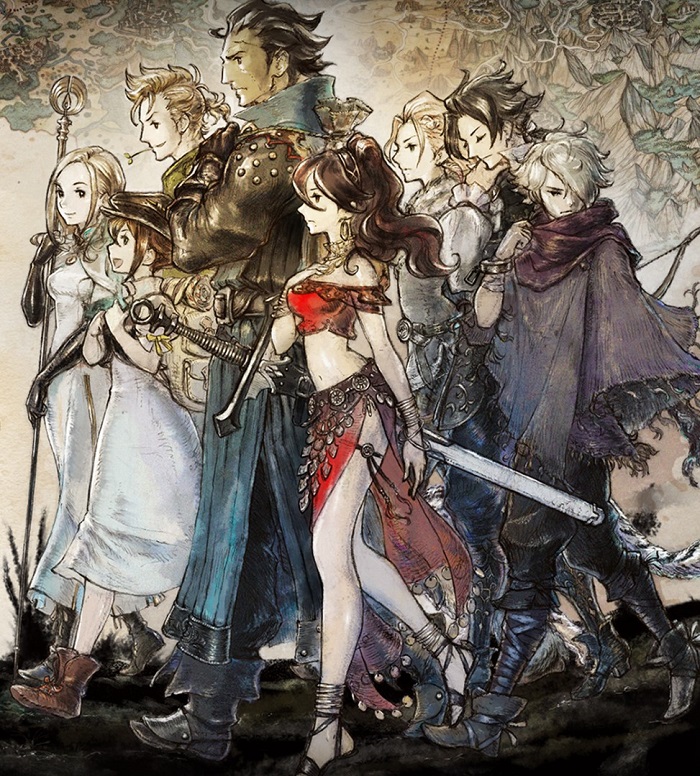Vinphonic
12-13-2017, 08:20 PM
The History of Symphonic Music in Japanese Video Games
Part I
The Video Game Legacy of Koichi Sugiyama
Dragon Quest
1986 � 2018
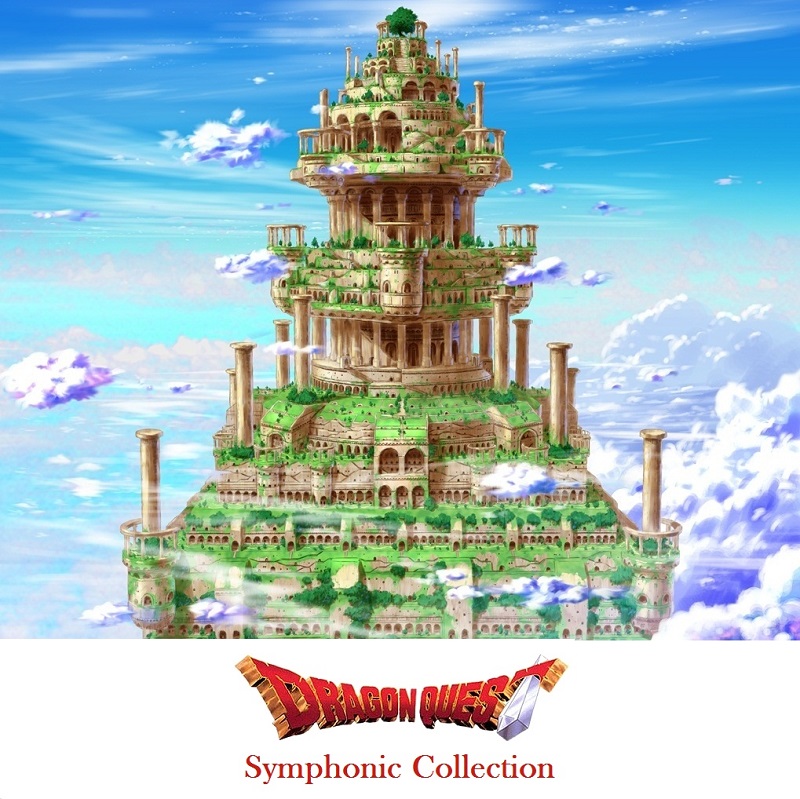
Dragon Quest is the grandfather of symphonic orchestral video game music and still around after over 30 years. The man, the legend, Koichi Sugiyama (strictly the composer persona here) pioneered the symphonic video game music in Japanese games and its primarily thanks to his legacy, contributions and effort that I can even share the following collection.
If you�ve ever seen one of their video game music concerts live, the Japanese treat Sugiyama�s Dragon Quest March as their second National Anthem.
And Sugiyama wrote hours upon hours of excellent symphonic music he arranged for a full symphony orchestra and it was (is) performed by the London Philharmonic, the Tokyo Metropolitan Symphony Orchestra and the NHK Symphony Orchestra.
I should also point out he started the whole Japanese Silvestri tradition with Dragon Quest III.
To this day his music is celebrated in the concert hall, often visited and conducted by the Grandmaster himself.
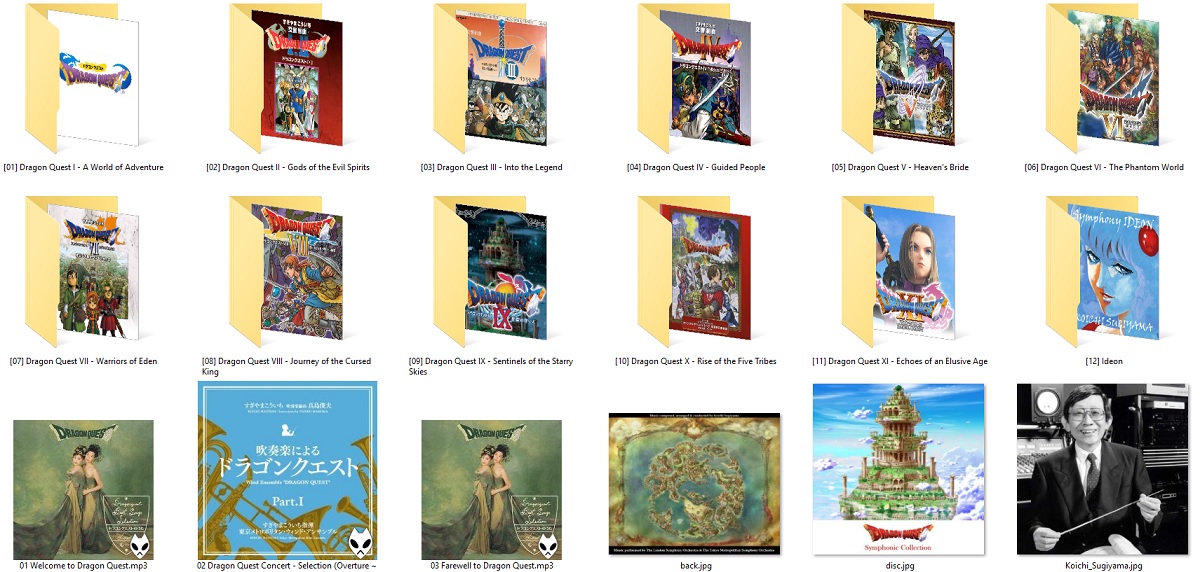
LINK IN DESCRIPTION (https://mega.nz/#!TAw0WSRD!HfsztnW9iwEl9BDCcPqr6fWLms_oUWTax76A0Hi9cqI)
In this collection I included the London recordings for Dragon Quest I-VII and after that the Tokyo Metropolitan recordings. I�ve also included my own album for Ideon since as great as Dragon Quest is, the score to anime Be Invoked and the symphonic suite are his Magnum Opus in my opinion. I believe it simply has to be heard at least once in your life.
Poor old Koichi Sugiyama; 82 years of age, a career spreading over six decades, a skill for orchestration and melody that most composers can only dream of� and nobody ever talks about him except to wax lyrical about Dragon Quest and occasionally attack him for his politics. Dragon Quest is great � there�s no doubt about that� and I�m of course very grateful that this franchise is keeping a veteran composer busy� but it�s not all he�s done, and it�s certainly not the only work in his oeuvre worthy of discussion.
Space Runaway Ideon � a mecha story with a difference, made in 1980� years before Dragon Quest even existed. His score for the TV series was great fun but a rather typical 70s affair � a mix of saccharine light pop and a tiny, badly recorded orchestra grinding through dated disco numbers. We have already heard the full classical symphony he wrote based on his original melodies, as performed by the Tokyo Philharmonic Orchestra, but that�s not the whole story as far as Ideon goes�
Ideon yielded some truly atrocious ratings (as did the first Mobile Suit Gundam series, ironically) and like its more famous cousin, was cancelled near to the end of its run, leaving the producers with a massively complicated and involved story which had to be completely resolved in just a few minutes of airtime. They did what they could � and the series did have an ending of sorts � but fans complained, and Tomino wasn�t satisfied with the way it turned out� so it was decided to revisit the story in the form of two films, to be released back-to-back theatrically, which would resolve the story properly. The first film was essentially a clip show condensed version of the TV series. The second film picked up where the TV series finished and concludes with arguably the greatest ending in cinematic history.
Sugiyama provided brand new symphonic (and occasionally, choral � a rarity at the time) scores for the movies; and it�s these that I�m presenting here. Like every Japanese score, alongside the orchestral score we also have disco reminiscent of the TV series, re-used tracks, sloppy filler tracks, and fragmentary stingers. I will upload all of this stuff separately but this release is about the symphonic score, so accordingly these pieces are missing. I have taken the liberty of extracting the symphonic tracks from both films (originally released separately) and running them together in a continuous album format � taken together, we have fifty minutes of cohesive, motif-driven music which plays at times like an Ideon Symphony No 2.
In these scores you will find heroism, grandeur, romance, action, suspense, mysticism, and even religious fervour.
The second film ends with two cues � �Flying� and �Cantata Orbis� - which, together, might constitute the most inspired work of Sugiyama�s career � the final scenes of that film demand a score to end all scores, and the composer absolutely rose to the challenge. Almost ten minutes of music (most of which plays in the film with little or no dialogue) that will have you in floods of tears and laughing with joy all at the same time. Some may call this music melodramatic� Some may call it emotionally manipulative. Let them be damned; it�s living, breathing music that doesn�t hide in the background� music that isn�t scared of coming to the fore. It�s music that aims right for your heart and tells you it�s OK to cry.
Ladies and gentlemen, Koichi Sugiyama at his very best� Space Runaway Ideon
It's also beyond amazing that Sugiyama still works on Dragon Quest, his Symphonic Suite for XI releases early next year.
Dragon Quest, Grandfather of Symphonic Games, still kicking it in 2018 (https://www.youtube.com/watch?v=lB0RK9sE_nU)
With Sugiyama and Dragon Quest began a truely marvelous development in the early 90s:
Part II
Game Music Concert Series (1991-1995)
-Remastered-
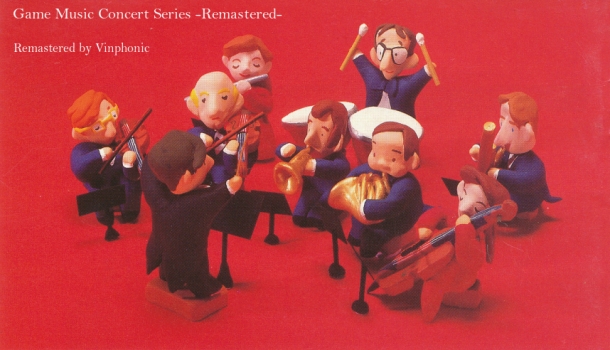
Excerpts
Toshihiko Sahashi
Super Metroid
Tokyo Symphony Orchestra
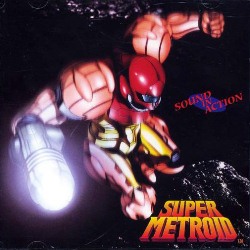
PV1 (https://www.youtube.com/watch?v=vKVHSs5EaZo)
Toshihiko Sahashi
SimCity
Tokyo Memorial Orchestra
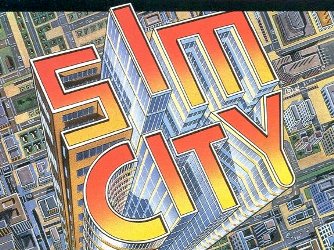
PV2 (https://www.youtube.com/watch?v=aXxxsb-NyQ8)
Kosuke Onozaki
Star Fox
Tokyo City Philharmonic Orchestra
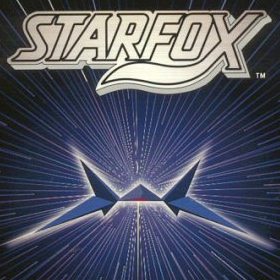
PV3 (https://www.youtube.com/watch?v=XyOHn0sUh6E)
It's now 20 years since the last Orchestral Game Music Concert Series cd has been released in japan. The five albums certainly deserve a little love and attention. They started a development I will elaborate on in another part but in many ways these albums are the birthplace of the current Game concert scene in Japan. I've been revisiting those old gems and found the sound to be too flat and muffled in general and decided it's time for a little "cleaning". I have done a complete remastering of the Game Music Concert Series. I carefully adjusted EQ and reverb to match the concert hall environment and applied "warm" saturation as well as tape simulation. I also did some tricks with virtual mics which may sound odd at first but the results are very pleasing to my ears. In general the sound is more bright, more warm and closer to a soundtrack recording. Everything was done in the highest possible quality, converted from cd to FLAC, edited in FLAC and finally saved as FLAC.
Game Music Concert 1 (1991)
Tokyo City Philharmonic Orchestra
-Remastered-
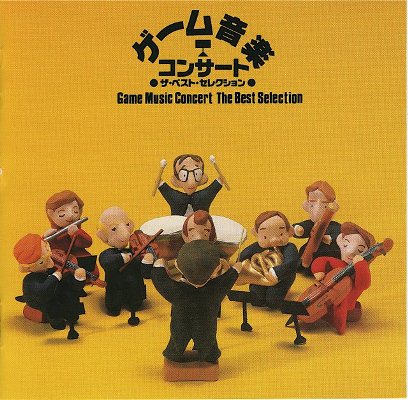
Game Music Concert 2 (1992)
Tokyo Memorial Orchestra
-Remastered-
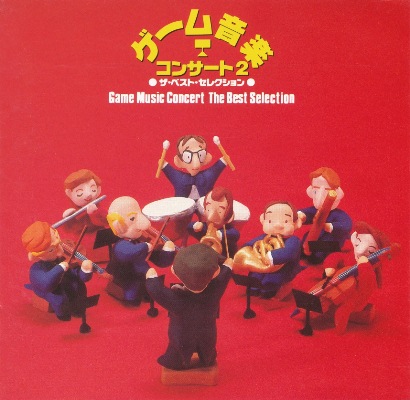
Game Music Concert 3 (1993)
Tokyo City Philharmonic Orchestra
-Remastered-
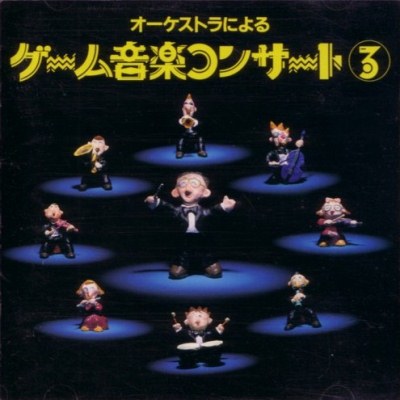
Game Music Concert 4 (1994)
Tokyo Symphony Orchestra
-Remastered-
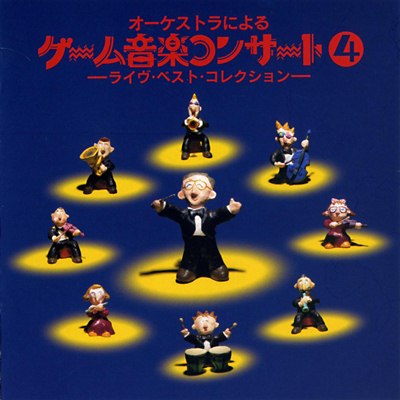
Game Music Concert 5 (1995)
Kanagawa Philharmonic Orchestra
-Remastered-
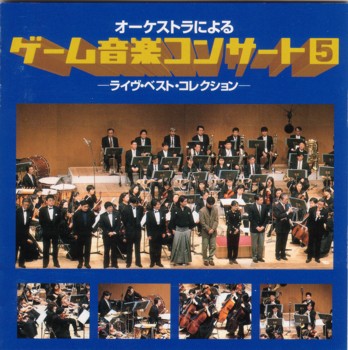
All things considered, they are fantastic orchestral albums. Many famous (and soon to be famous) composers and arrangers worked on this series. Keiichi Oku, Kohei Tanaka, Toshihiko Sahashi, Toshiyuki Watanabe & Yoko Kanno to name just a few. They gave a brilliant tribute to the musical quality of the 8-Bit and 16-Bit Era and showed everyone that melody will always be king, at least in japan. I grew up on a Super Famicom and I remember vividly with a smile how I hummed all the killer themes written for the games of that era for hours. Music played a huge part in my enjoyment of these games and to hear it arranged for a whole symphony orchestra brought me to tears the first time I listened to it. I hunted down the CDs which were quite expensiv even then but my love for the melodies was stronger than my economical reasoning.
Everything is properly tagged: Who arranged, who composed and who conducted. The one fault with the series in my opinion is that Sugiyama's own symphonic series makes the Dragon Quest pieces feel quite redundant but that's only a minor complaint.
Also, as a bonus, I remastered the Smash Brothers DX Orchestral Concert, certainly another influental concert, since it is responsible for the rise of "Game Symphony Japan" and "JAGMO" who you become more familiar with as we go along. Of course I approached it with the same attention to quality as the rest.
Dairantou Smash Brothers DX Orchestra Concert (2002)
New Japan Philharmonic
-Remastered-
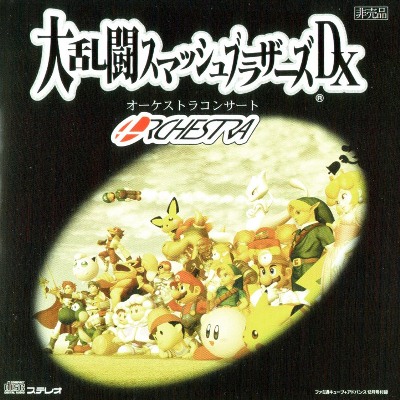
LINK IN DESCRIPTION[FLAC] (https://mega.nz/#!4qh0gKbK!I3W1Ea6Ln0eOVwfzWmg4-pM3jHdAYpp_ZBZNG2koxmg)
Now on to the main part, a world Sugiyama made possible that really began to flourish in the 2000s, have a taste of his legacy:
Part III
The Legacy of Japan
Symphonic Games
1991 - 2017
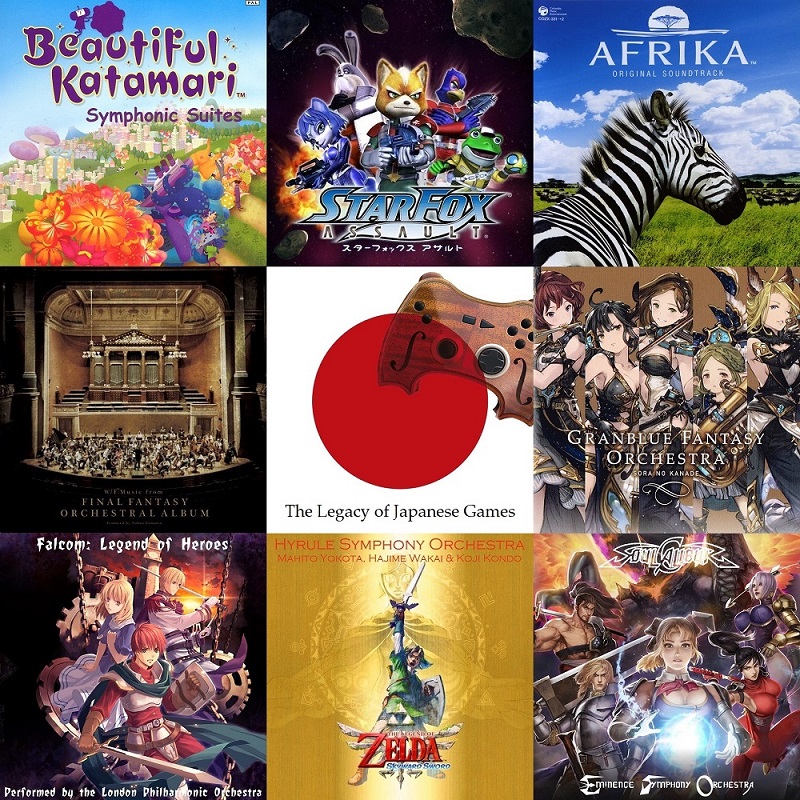
Examples of �Japanese Classical� music in Games:
One of the greatest Game intros ever scored (https://www.youtube.com/watch?v=_K7x7JVm-zE)
Likewise, also one of the most charming games ever made (https://www.youtube.com/watch?v=sJPhasMsayI)
Symphonic Dance (https://www.youtube.com/watch?v=lKpfmE4xWHI)
Symphonic Fantasy (https://www.youtube.com/watch?v=xOs00ahSO4c)
The next big symphonic game release (https://www.youtube.com/watch?v=EkgWQOD0NNA)
If only she scored the whole game (https://www.youtube.com/watch?v=rckGP4Ndzt0)
No symphonic game collection should miss it (https://www.youtube.com/watch?v=51_3ZoBccVs)
The Olympic Spirit (https://www.youtube.com/watch?v=Eul_woIm6t8)
One of the greatest marches in game history (https://www.youtube.com/watch?v=PzKqzvPP_Us)
Nintendo/Namco/Sega/Koei all have their share of amazing symphonic music (https://www.youtube.com/watch?v=VIpZ1aFQuBo)
Orchestral music in Games, strong since the early 90s (six years before Medal of Honor) (https://www.youtube.com/watch?v=IGNajMie_UM)
Building on a melodic legacy decades old are Japanese game scores strongest appeal (https://www.youtube.com/watch?v=FSZBcPRQpO8)
More classic Hollywood than Hollywood itself (https://www.youtube.com/watch?v=cW_H_OfJzYA&list=PL6F5F1F4F5DABB086)
Japan is truly the inheritor of the European and American classical/film sound. There exists an entire library worth of fantastic symphonic video game music (some of it I/we have yet to hear), composed over the last 30 years. If I didn�t already share a huge part of it in my Legacy composer collection, the size would be too massive to share, from Sahashi's Blue Stinger, to Hattori's IQ to Oshima's Aerial Legends. If I would also count the symphonic music not performed by a live-ensemble thanks to either technological limitations or budget concerns, from 8-bit chip sound to modern Sakimoto synth, the size of this collection would be astronomical.
Nonetheless, here you have a pretty huge chunk of excellent symphonic music written for Japanese games performed by a Symphony Orchestra or at least full orchestra. Believe me I'm still digging and finding stuff, even after all these years. Actually lets really think on this: I discovered Deadstorm Pirates by pure accident on Japanese iTunes and bam, masterfully composed symphonic music, completely obscure and perhaps ONLY heard by this small community here. Even Tajima's opus for Katamari is rather obscure, hidden on a soundtrack for an obscure game and the cutscenes they are used for are the weirdest thing I've ever seen from Japan. For how amazing the music in Katamari is, only a handful people on the planet even KNOW about Tajima's classical opus. This needs to be played in the Royal Albert Hall.
Another point is that I am of the opinion that Japanese orchestral video game music can not simply be put into one category like "classical" either, but if I had to chose, I would say it definitely is more classical inspired than film music, and Sugiyama played a huge part in shaping the Japanese orchestral game sound. Although Back to the Future pops up quite a lot I have to say, especially in Tajima's Katamari (Silvestri is studied at a Japanese conservatory the same way as Mahler afterall)

LINK IN DESCRIPTION (https://mega.nz/#!VghlTR6C!MDxKRXdctnAG1XmuTm4ZUnksvDMCyeRmOb_51rsesp0)
To go a little through this collection to highlight the marvels, the Final Fantasy collection is a potpourri from Dissidia 012, Distant Worlds and Hamaguchi�s arrangements. Afterall, after Dragon Quest, Final Fantasy has to be the biggest and greatest thing from their video game scene. Hours of classical bravado and beauty, composed by another legendary video game composer, Nobuo Uematsu who is still an active composer and equally celebrated as Sugiyama in the concert hall, but who also made it internationnaly, having tribute concerts performed all around Europe with excellent arrangers giving his music the spotlight it deserves.
Next we move to perhaps the greatest marvel of the Japanese video game scene, Katsuro Tajima�s Warsaw recording for various Namco games. I am of the opinion all the music you hear here was done in a single flight to Warsaw and the later chopped for the various games (Katamari, Deadstorm Pirates, Ace Combat 5). I also arranged the Deadstorm pieces to a cantata that again, flows together so naturally you can almost not believe it. In any case this is some of the best music ever written for any media. Its larger than life, imposing, a Dies-Irae and a heroic Hollywood epic. You can definitely hear some Silvestri, Williams and Herrmann influences among the classical brigade. One of Japan�s many wonders.
Granblue Fantasy Orchestra is continuing the tradition of Dragon Quest and Final Fantasy, by a newcomer under the guidance of Uematsu. This recording was used for various Granblue media such as the game and anime so it is safe to say this was done with the intent to use it as media music. The music itself does not reach the heights of either FF or DQ but is nonetheless a great listen, a 90 minute symphonic adventure.
AFRIKA marks yet another marvel, a Japanese composer goes to Hollywood to record a Hollywood symphonic film score suite that is ironically not possible anymore in the place they recorded it. The score is more a tribute to classic Hollywood than serving the game but no complains from my side.
The next three albums are some examples that symphonic video game music was nothing uncommon for Japanese games in the 90s, first we start with Yuzo Koshiro�s Symphonic Suite for Actraiser that is filled to the brim with film music references, even the 20th Century Fox fanfare appears. You can say it�s a tradition at this point.
Next up we have another game series next to Nobunga that sometimes has truly marvelous symphonic music, recently with contributions by Yoko Kanno. Romance of the Three Kingdoms IV is the best of them all, Jun Nagao provides a symphonic arrangement from the 16-bit game music to a fantastic, introspective and absolutely transcendent Journey into another realm of spirit.
Koshiro Nishida�s A5 is a score out of time and that this classical score was recorded for a Train Simulator beggars belief. A wonderful short and sweet symphonic delight.
Next moving to some examples of marvelous symphonic music from the 2000s (I already shared Nobunaga in Yamashita�s collection):
Flower Funeral Symphony is Akiko Shikata�s Magnum Opus and it is amazing how much it still sounds like her vocal work despite it being her first time working with a worldclass orchestra. The symphonic dance at the beginning is one of my favorite symphonic dances EVER. I feel many Japanese vocal artists would have no problem working with an orchestra (some of them do btw).
Falcom � Legend of heroes is a symphonic album I made from Gradius, the Warsaw tracks of The Apocalypse IV, Falcom Neo Classic, the Main Title of Argos no Senshi and Go Shiina's Overture. It�s a symphonic legend for sure with many arrangements by our favorites (Amano, Oshima, Hattori etc.)
StarFox Assault needs no introduction. An excellent symphonic SciFi ride by two insanely talented Namco composers, militaristic bravado with an onslaught of percussion, with influences from Cinema (Williams) and the concert hall (Prokofiev). This includeds the game score (with some sfx) an my symphonic ride arrangement.
Kessen I+II are two excellent symphonic war scores by the great Reijiro Koroku. Very much in the same vain as Yamashita�s Nobunaga scores.
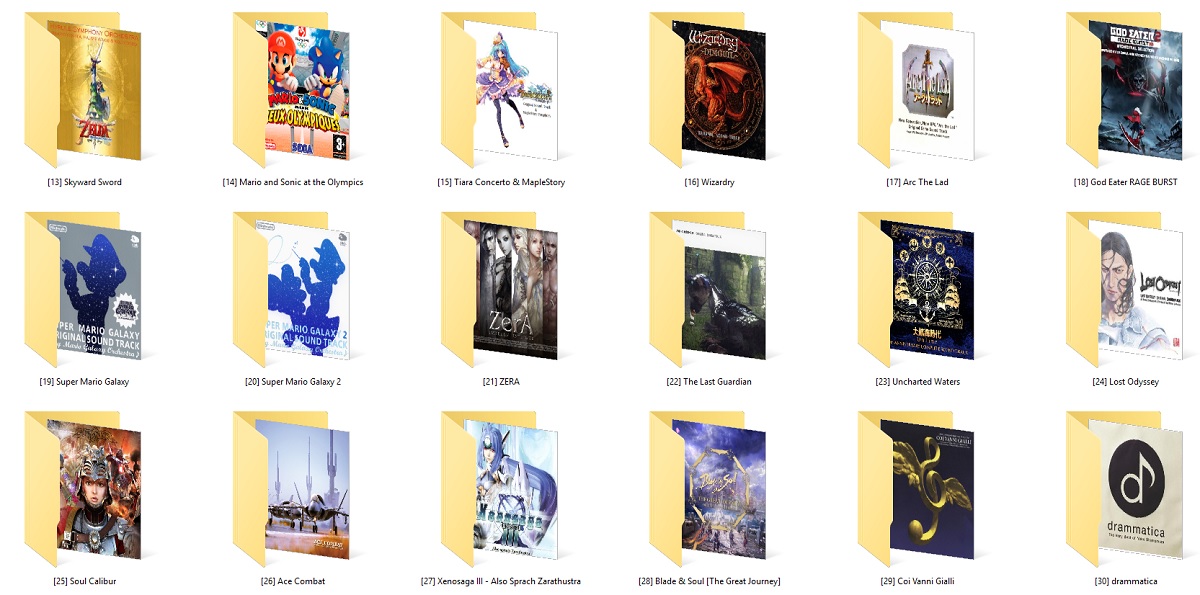
LINK IN DESCRIPTION (https://mega.nz/#!1mJWCYob!CP5tJlc_zE25R4_qPHJqUqQOzMvHjas-yeJD2TUsyK8)
Skyward Sword is my favorite orchestral score Nintendo has ever done (Assault was Namco). To me this is what Zelda should sound like, a classic symphonic adventure into Dungeons, a flight through the sky and a battle with evil knights. It certainly is their most ambitious with great romantic moments, classical marches and a truly fantastic suite at the end showcasing some really stellar melodies from this game that serve as a strong foundation for the game�s musical score. This also includes the other orchestral tracks for Twilight Princess and one from Ocarina of Time remaster as complement.
Mario and Sonic at the Olympics series is yet another marvel. For every new entry they record a few minutes of true classical Hollywood bravado. Together these form an album full of uplifting bombast, certainly true to the Olympic spirit.
Wizardy and Arc The Lad are classic 80s Fantasy film score suites.
God Eater: RAGE BURST is Go Shiina� best work for me, arranged by Sachiko Miyano. The recording may be of low quality but the music certainly is not. Its equally Hollywood bombast as it is classically inspired with Aria of Light being the standout. Some weird sound effects here and there but nothing major. It also has much thematic material, giving it a films core character.
Mario Galaxy 1+2 are delightful orchestral scores, full of charm and quirkiness. And the Staff Roll is of course the highlight. Very filmic in certain parts.
The Last Guardian is pretty much a new Thomas Newman score, recorded with the LSO that somehow ended up for a Japanese game. Very rhythmic work, but not without purpose, its all deliberate and the score has some moments of wonder and awe, especially during the Finale.
Uncharted Waters Online shows that Koei Tecmo composers can deliver as well as Namco. Kazunori Miyake takes us around the world with much Imperial Splendour and various different musical cultures, before finishing with a finale of militaristic bravado. Again a blend of film and concert music.
LOST ODYSSEY includes all the orchestral pieces from the game and Uematsu wrote a pretty good score here, the highlight for me being the symphonic credits: �Light of Blessing ~ A Letter�. A beautiful piece for Organ, orchestra and choir.
Soul Calibur and Ace Combat have their shares of good music for sure. For SC Junichi Nakatsuru�s contributions are definitely the standout, especially his PATH OF DESTINY (of course Williams inspired, same as many orchestral pieces of SCIV thanks to the Star Wars tie-in). With Ace Combat Natsumi Kameoka and Wataru Hokoyama certainly elevated Go Shiina�s music. I especially like Westerly and from the old games Unsung War and ZERO, a Final Battle Flamenco, are favorites.
Tiara Concerto, MapleStory, ZERA and Blade & Soul [The Great Journey] show that collaborations with other Asian countries can produce equally marvelous music (Yamashita�s Reign of Revolution and Call of Chaos come to mind). From those three examples, Tiara Concerto is my favorite, its full of confidence and optimism, certainly more classical than film inspired and a joy to listen to. ZERA is equally great with much big Hollywood moments and Blade & Soul [The Great Journey] shows a very intruiging Korean classical style I�m interested in hearing more of. MapleStory is now throwaway either.
Finally before moving to the last part of this collection a delightful breather with one of Yuki Kajiura's best efforts for Xenosaga III, Hamauzu�s Coi Vanni Gialli and Yoko Shimomura�s symphonic collection.
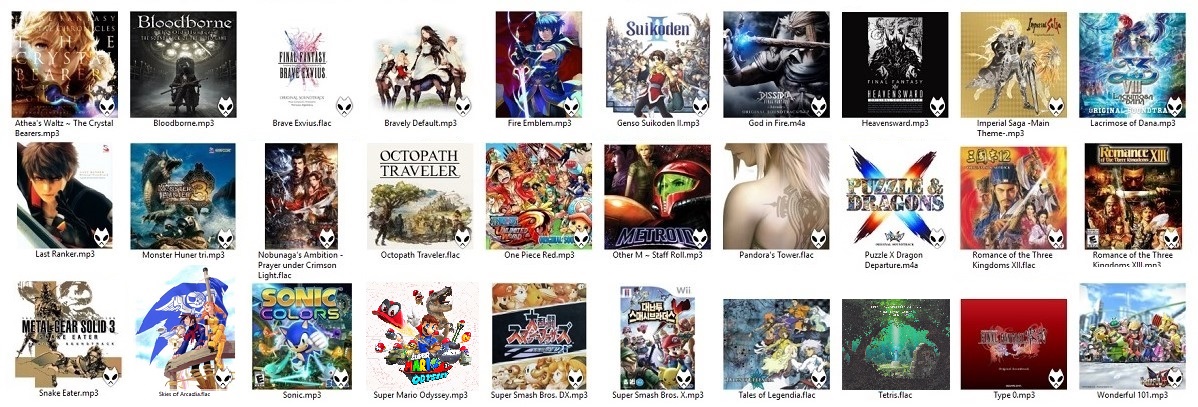
LINK IN DESCRIPTION (https://mega.nz/#!p7B3ja6R!7ZxOfXZhRe7GR6rPufRQFTD6_h8DbEOC4lk2e5hC214)
Bonus: Elvandia Story (https://mega.nz/#!Xu41mKbL!rs8CsXMGabc2dNLFEnbjDMb6SHkG_JzSPTQjShSqZ30)
The last part are various examples of symphonic pieces appearing in various forms on Japanese soundtracks and gamerips. I�ve included various arrangements from my side, such as the orchestral parts of Smash Brothers DX (the opening is a favorite) and Smash Brothers X, Romance of the Three Kingdoms, Crystal Bearers, Tales of Legendia and more. Lets just say the practice of recording a few/the most important pieces with a live-ensemble is still going strong. Especially the collaboration with overseas orchestras grows ever stronger with Prague, Warsaw and London appearing in Japanese game scores.
Keep in mind this is by far not everything out there and I'm excluding all the countless symphonic tribute and concept albums popping up in recent times. With Valkyria Revolution, Aerial Legends, DEEMO, Taishi, Ni no Kuni II, Xenoblade 2 and Valkyria 4, Japanese games will continue tp uphold the symphonic tradition pioneered by Sugiyama.
And before you continue to the final part, I highly recommend you also check out my and nextday's Symphonic Gamers (Thread 220609) album. The two concerts themselves are on youtube. There's no doubt that the Japanese take Video Game Culture very seriously.
There has also been a development in recent years that is truely astounding on the game music front, the establishemnt of orchestras soley dedicated to play Anime and Game music:
http://vgmland.com/blog/misc/essay-v...hestras-japan/
"The amount of game music orchestras in Japan is relatively big. According to Ichihara, Tokyo has close the 500 amateur orchestras and ensembles, and over 1000 exist in the entire country.[37] If 20 or more of them perform game music, it doesn�t seem like a big percentage. But the UK has 1213 amateur orchestras and ensembles and only one of them has listed that they perform game music alongside other music.[29] In this sense, 20 or more in Japan is a huge number.
Most of the music performed by Japanese game music orchestras comes from Square Enix games. Ichihara says that Square Enix has made a lot of games that sold well, so a lot of their music has stuck with people. If you want to make sure that everyone in the audience knows at least one song, you have to include Square Enix games.[37]
Another company with well-known and successful games is Nintendo, but game music orchestras rarely perform their music. The reason could be that they are so protective of their music. In a blog post on Gaming Rocks On[30], the author writes, �Unlike Square Enix and a plethora of other companies, Nintendo very rarely releases any of it�s music.� Thomas B�cker, a long-time producer of game music concerts, has said that obtaining licensing for concerts is difficult and when Nintendo does give permission to a concert, they review and approve all the steps involved.[31] So if obtaining the rights to perform music is difficult in general, it must be even more difficult with Nintendo."
https://otakumode.com/news/538dd502f...adakaz-Mishiya
"JAGMO�s vision is to make game music a part of culture and give it its place in music history. In the future, I�d like to keep working to bring about things like instructional books on playing game music and schools dedicated to game music. In order to accomplish that, I think we need to not just produce something for consumers, but to have each performer put their life into it and make music that stirs the souls of the listeners. Even now, we�re all in the process of making that kind of music [...] I�d like for us to be an orchestra that even people who aren�t familiar with video games will listen to. In order for that to happen, we need completely new techniques and arrangements. I�d like to try mixing two songs that we currently do separately or fuse classical techniques with game music and do variations using various instruments. For example, I�d like to mix the �Golbez� and �Big Bridge� themes and bring out even more of what makes these pieces great. For that we need an excellent arranger and performers who really understand video game music, so we will have to expand the orchestra beyond where it is now." (JAGMO Producer Tadakaz Mishiya)
http://vgmland.com/blog/interviews/y...ichihara-2014/
"I�m a conductor and love orchestral and classical music. For 200-300 years, classical music has been handed down and its fascination and force is immeasurable. At the same time I love game music. I am of the generation that grew up together with games getting more advanced. Every day I listened to the music that flowed from the game consoles. The music that I�ve listened to the most in my life might be video game music.
Orchestral music and game music. If the two kinds of music that I love unite, something wonderful must come out of it. That thought is why I want to perform game music with an orchestra. Maybe you could simply say it�s my hobby. Anyway, the answer is �because I love it�. (Yusuke Ichihara, founder of New Japan BGM Philharmonic Orchestra).
Finally, here's the complementary thread, Symphonic Music in Western Games (Thread 221170)
Part IV
Symphonic Legacy
Japanese Orchestral Game Concerts
(2008-2018)
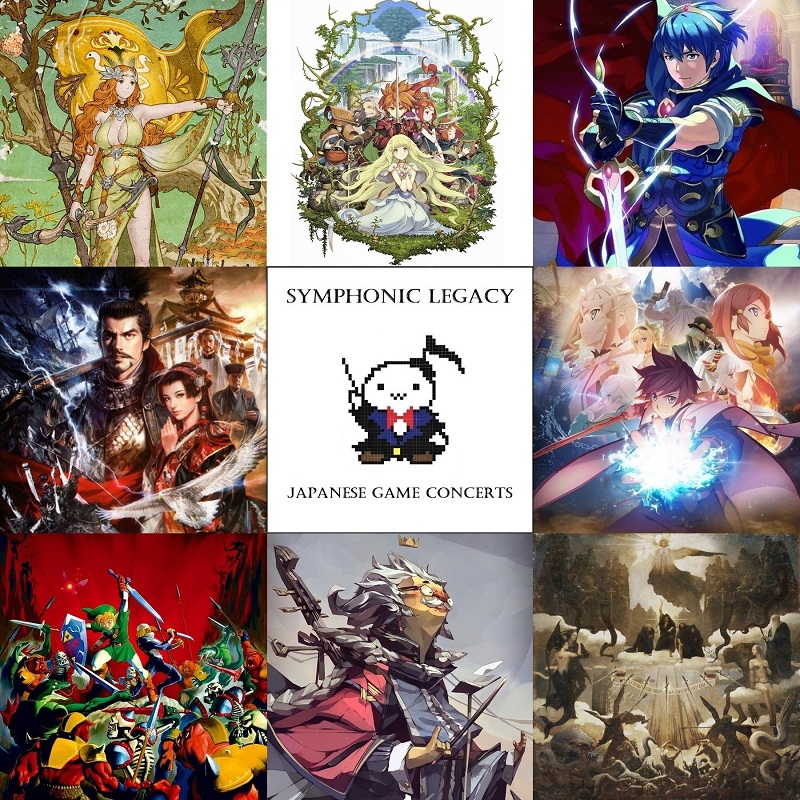
Nearly twenty orchestral albums have been produced in the last 30 months, ranging from honest symphonic arrangement to silly bouncy Jazz-Rock. In total well over 50 concerts were held in Japan in those 30 months about orchestral game music, from new founded units (Game Symphony Japan and JAGMO) to century old units (Tokyo Philharmonic).
Among those Sugiyama holds the record with most performances (Dragon Quest), followed by concerts which feature from small to big degree Nobuo Uematsu, Yasunori Mitsuda and Kohei Tanaka.
If you look at the timeframe it just is simply astonishing.
And it shows no sign of stopping. From public TV appearances to private concerts, Japanese Game Concerts are not on the rise, they are an established component of Video Game Culture in Japan. A culture with genuine and skilled artist in all fields making everything from silly light-hearted fun to Renaissance, Expressionistic and Impressionistic Inspired Art. Games are celebrated in the concert hall, in theater, in cafe and bars. From Stageplay to Big Band evening, Games (and Anime) rule the cultural scene in Tokyo. In music celebration, concert audiences are polite and considerate, the people behind it enthusiastic and passionate. For some, even making Game Music into a new �Classical Genre� is a personal agenda.
And there is certainly potential: FFVI - Dancing Mad (https://www.youtube.com/watch?v=-O-9U_QKhgA)
Aside from the concert world, symphonic game albums have also been produced in these 30 months:
- Final Symphony (Wanamo/Valtonen) with the LSO
- Dragon Quest XI (Sugiyama) with the Tokyo Metropolitan Symphony Orchestra
- Aeral Legends (Michiru Oshima) with the Budapest Symphony Orchestra
- Granblue Fantasy Orchestra (Tsumo Narita) with the Tokyo Philharmonic
- Orchestral SAGA (Kosuke Yamashita) with the Czech National Symphony Orchestra
- Kingdom Hearts Orchestra album (Kaoru Wada, Natsumi Kameoka) with the FILMharmonic Orchestra Prague
- Symphonic Suite (Kosuke Yamashita) for Scarlet Grace with the Kanagawa Philharmonic
The video game culture of Japan brought me many of my favorite orchestral albums in the 21st century, from Final Fantasy to Katamari, from Ni no Kuni to Nobunaga�s Ambition, from Valkyria Revolution to Gravity Daze 2.
In addition, it is also full of individual directors and artist whose work you notice at first glance most of the time:
- You don�t play the trademark Shadow of the Colossus or Last Guardian, you play Fumito Ueda�s work
- You don�t play the trademark Gravity Daze or Silent Hill, you play Keiichiro Toyama�s work
- You don�t play the trademark Dark Souls or Bloodborne, you play Hidetaka Miyazaki�s work
- You don�t play the trademark Nier, you play Yoko Taro�s work
- You don�t play the trademark Persona 5 or Catherine, you play Katsura Hashino work
- You don�t play the trademark Ni no Kuni and Layton, you play Akihiro Hino�s work
- Even a game I have no interest in playing (FFXIV) has gorgeus art by some of my favorite Japanese artists
One cannot stress enough the important factor of personal voice and style and the sense of absolute artistic freedom I get from each of their works. Not to mention understanding of classical film directing, classical art and music. And that is also the case for a bunch of anime directors.
Taking everything I�ve seen over the years, the level of care and cultural importance Video Games receive in Japan simply doesn�t exist anywhere else in the world.
Each year there are also dozens of game concerts that are not commercial and are concerts by fans, with most inviting the original composer as a honored guest (like Final Fantasy Tactics):
Gloria Angelicus Philharmonic Concert ~ Music from Xenogears
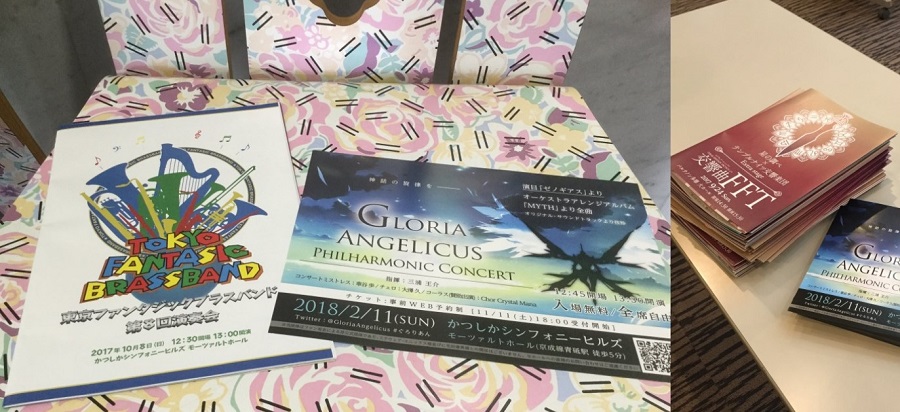
"Gloria Angelicus is an informal group formed by volunteers of classical musicians with the aim of playing music for Mr. Mitsuda. We are a group of game music fans. There exist no ties to Mitsuda or Square Enix. We will hold the concert at Toshika Symphony Hills Mozart Hall, February 11. The entry is free as long as seats are available. Mr. Mitsuda will be there as our honored guest. But please note we will refuse visitors who cosplay firmly. We want no annoyance to other customers."
What started in 1991 with the first Orchestral Game Concert and with the first Symphonic album by Sugiyama in 1993/4 with the London Philharmonic Orchestra has in just 25 years evolved into a full-fleshed Video Game Culture in Japan that has a value and love for classical/film art and music.
German Game Concerts (not about German games!) and Japanese youth in JAGMO

LINK IN DESCRIPTION (https://mega.nz/#!vRZz0Yha!9qkOa6zM9sXprMZ1mpSuFxru-D5qhkNJutHfs52haLQ)
One interesting aspect of the early 2010s is the rise of German Game Concerts about Japanese music, a given, certainly, given our historic ties. Germany is actually (after Japan of course) the first country to establish a Video Game concert scene. Thanks to the wonderful Thomas B�cker, concerts of Japanese games are now being performed all over Europe, with serious intent to produce concert-grade arrangements of worldwide known video game pieces. The pinnacle of this development has to be Final Symphony but Symphonic Fantasies, Legends and Odysseys and Selections are of course also some of the best video game arrangements you can find. Thomas B�cker, Eckard Stier, Jonne Valtonen and Roger Wanamo are household names for me for truly pushing the limits of game music and whether or not that trumps the pure approach of Hamaguchi+Uematsu (I think it doesn�t reach it), it nonetheless is marvelous to hear. Hopefully this won�t be all we will hearing from the team of �Spielemusikkonzerte�. Final Symphony II takes quite a while to get released but right now there are numerous concerts announced in Germany and Austria.
The second interesting aspect I want to elaborate is the establishment of an orchestral youth scene in the Japanese concert world, and that scene consisting of mostly 20-30 year olds, from player to arranger, is insanely passionate about games and anime, to the point they played over three hours straight for Sakimoto (Final Fantasy Tactics) and left him utterly in tears.
Some new names from this scene are Ajana Tsujita who wrote a mini-opera for Fire Emblem Echoes (but we will probably never hear it unless they hurry up and produce a symphonic album for Fire Emblem) and Erika Fukasawa, who is chief arranger and director of JAGMO, who gave me my favorite arrangement of anything Mario. JAGMO�s national broadcast on NHK certainly left an impression (to worldwide recognition). I hope Symphonic Gamers becomes an annual event for many years to come.
On the sidelines we also have the ever increasing �Game Symphony Japan�, now renamed to �Anime and Game Symphony Japan� and the �New Japan Game Philharmonic� following in the footsteps of the "Press Start" concerts of the 2000s (also unreleased).
Symphonic Arrangements

LINK IN DESCRIPTION (https://mega.nz/#!DcYiQS5Q!3Aq3A9tbfzktMDOPNJY2ZbhYpVKyojJqU5ylc2sDl8s)
The one composer and arranger leading the symphonic video game arrangement scene in Japan is concert professor Kosuke Yamashita, conducting and arranging the most prestigious concerts in Japan (Nobunaga�s Ambition, Romance of the Three Kingdoms, Monster Strike Symphony and The Legend of Zelda, Secret of Mana). He is without a doubt, the leading figure in Video Game arrangement these days, following in Shiro Hamaguchi�s footsteps.
Natsumi Kameoka and Sachiko Miyano are also prominent names, providing a level of class to certain pieces that sometimes makes it baffling to listen to the original for comparison.
On the performance side the Tokyo Philharmonic under Hirofumi Kurita has established itself as the go-to choice for an �Anime and Game Orchestra performance�. Also what once was a scene of a certain strangeness on their faces during their first performances is now replaced by genuine smiles while performing, most recently in Eorzean Symphony (they give a shit now, probably why Tales of 2017 sounds much better than in previous years).
The most experimental concert and probably the most interesting to watch has to be Monster Strike Symphony. It has everything from Piano Concerto to frantic Jazz to symphonic movements. It certainly was a crazy evening, full of Japanese weirdness in the best possible way.
Overall, the concert I enjoy the most has to be Tales of Orchestra 2017 (and best of from 2015). Sorey�s Theme never had the power and catchiness it has in 2017 and you can�t beat Go Shiina�s exuberant larger than life piece, even if they are as far away from sophisticated as you can get, but that�s fine. In addition there�s quite a lot of grand symphonic pieces, expertly arranged to a level the original source is laughable by comparison. This version is a best of from every Tales Concert so far. I�ve arranged it so that it even becomes some sort of Fantasy film score.
The most quality can be found in Nobunaga�s Abition and Romance of the Three Kingdoms. Spanning a legacy of over 30 years, much excellent music has been written for them and Yamashita brings it to light with the Kanagawa Philharmonic.
Zelda has many excellent pieces and while not all arrangements deliver, it�s a quality listen of some of my favorite childhood melodies. Same goes for Fire Emblem. In both there�s good old class and good old Fantasy. I�ve also included every concert performance of its Main Theme (hurry up with the Symphonic Album, Symphony No. 5!!!)
Film Score and Bouncy Arrangements

LINK IN DESCRIPTION (https://mega.nz/#!DFQh3QzA!3SwWTGLIJaCEj1kO-0hbNlQD_V8OqjoerqS-_QyTk9Q)
With Eorzean Symphony and Monster Hunter, there�s certainly an air of Film score in the arrangements, brought to light by arranger Nobuko Toda. Not to say Masato Koda�s pieces don�t function well either. Eorzean is a good case that everything �sounds� great with a skilled arranger. I especially like how operatic it�s trying to get. And Monster Hunter never sounded this bombastic.
Seiken Densetsu and Kirby are a bit more on the bouncy side but nonetheless full of beautiful and grand moments with little snippets from classical pieces and full of strong melodies and some really heartwarming moments.
Final Fantasy XV got a special media concert with the LSO which came completely out of left field but some really nice moments. I wish the game score had a fraction of that level of quality. Thankfully the DLC scores made up for it.
There�s plenty of Gyakuten Saiban concerts but 2008 is just a cut above the rest for me, so I�ve chosen it as an example of single concerts that happened every now and then in the past decade but certainly not in the quantity they do today.
Encore

LINK IN DESCRIPTION (https://mega.nz/#!rIR03CKZ!obO-PChe9nViK5Q31Jo2YwqHPg3Yqu7x6BCsQuBx57I)
Kantai Classical certainly starts with class and for what the music is (throwaway mobile music) its really listenable on this album, thanks to excellent arrangement work.
Traveling August is one of those Japanese enigmas, its completely obscure and only thanks to nextday and my combined efforts it is even brought to light outside of Japan. Let it sink in, a proper orchestra concert for a Doujin (visual novel) Game circle is certainly something else. This was a passion project above all else and it�s just too cute not to include it.
Next up (beside the obligatory concerts for Dragon Quest) are concerts for Shadow of the Collossus, Xenogears, Phantasy Star 30th Anniversary, Wild Arms, Arc The Lad and many more that probably won�t get a release.
I also anticipate a Valkyria Chronicles concert sometime in the future.
Continue?!
Part I
The Video Game Legacy of Koichi Sugiyama
Dragon Quest
1986 � 2018

Dragon Quest is the grandfather of symphonic orchestral video game music and still around after over 30 years. The man, the legend, Koichi Sugiyama (strictly the composer persona here) pioneered the symphonic video game music in Japanese games and its primarily thanks to his legacy, contributions and effort that I can even share the following collection.
If you�ve ever seen one of their video game music concerts live, the Japanese treat Sugiyama�s Dragon Quest March as their second National Anthem.
And Sugiyama wrote hours upon hours of excellent symphonic music he arranged for a full symphony orchestra and it was (is) performed by the London Philharmonic, the Tokyo Metropolitan Symphony Orchestra and the NHK Symphony Orchestra.
I should also point out he started the whole Japanese Silvestri tradition with Dragon Quest III.
To this day his music is celebrated in the concert hall, often visited and conducted by the Grandmaster himself.

LINK IN DESCRIPTION (https://mega.nz/#!TAw0WSRD!HfsztnW9iwEl9BDCcPqr6fWLms_oUWTax76A0Hi9cqI)
In this collection I included the London recordings for Dragon Quest I-VII and after that the Tokyo Metropolitan recordings. I�ve also included my own album for Ideon since as great as Dragon Quest is, the score to anime Be Invoked and the symphonic suite are his Magnum Opus in my opinion. I believe it simply has to be heard at least once in your life.
Poor old Koichi Sugiyama; 82 years of age, a career spreading over six decades, a skill for orchestration and melody that most composers can only dream of� and nobody ever talks about him except to wax lyrical about Dragon Quest and occasionally attack him for his politics. Dragon Quest is great � there�s no doubt about that� and I�m of course very grateful that this franchise is keeping a veteran composer busy� but it�s not all he�s done, and it�s certainly not the only work in his oeuvre worthy of discussion.
Space Runaway Ideon � a mecha story with a difference, made in 1980� years before Dragon Quest even existed. His score for the TV series was great fun but a rather typical 70s affair � a mix of saccharine light pop and a tiny, badly recorded orchestra grinding through dated disco numbers. We have already heard the full classical symphony he wrote based on his original melodies, as performed by the Tokyo Philharmonic Orchestra, but that�s not the whole story as far as Ideon goes�
Ideon yielded some truly atrocious ratings (as did the first Mobile Suit Gundam series, ironically) and like its more famous cousin, was cancelled near to the end of its run, leaving the producers with a massively complicated and involved story which had to be completely resolved in just a few minutes of airtime. They did what they could � and the series did have an ending of sorts � but fans complained, and Tomino wasn�t satisfied with the way it turned out� so it was decided to revisit the story in the form of two films, to be released back-to-back theatrically, which would resolve the story properly. The first film was essentially a clip show condensed version of the TV series. The second film picked up where the TV series finished and concludes with arguably the greatest ending in cinematic history.
Sugiyama provided brand new symphonic (and occasionally, choral � a rarity at the time) scores for the movies; and it�s these that I�m presenting here. Like every Japanese score, alongside the orchestral score we also have disco reminiscent of the TV series, re-used tracks, sloppy filler tracks, and fragmentary stingers. I will upload all of this stuff separately but this release is about the symphonic score, so accordingly these pieces are missing. I have taken the liberty of extracting the symphonic tracks from both films (originally released separately) and running them together in a continuous album format � taken together, we have fifty minutes of cohesive, motif-driven music which plays at times like an Ideon Symphony No 2.
In these scores you will find heroism, grandeur, romance, action, suspense, mysticism, and even religious fervour.
The second film ends with two cues � �Flying� and �Cantata Orbis� - which, together, might constitute the most inspired work of Sugiyama�s career � the final scenes of that film demand a score to end all scores, and the composer absolutely rose to the challenge. Almost ten minutes of music (most of which plays in the film with little or no dialogue) that will have you in floods of tears and laughing with joy all at the same time. Some may call this music melodramatic� Some may call it emotionally manipulative. Let them be damned; it�s living, breathing music that doesn�t hide in the background� music that isn�t scared of coming to the fore. It�s music that aims right for your heart and tells you it�s OK to cry.
Ladies and gentlemen, Koichi Sugiyama at his very best� Space Runaway Ideon
It's also beyond amazing that Sugiyama still works on Dragon Quest, his Symphonic Suite for XI releases early next year.
Dragon Quest, Grandfather of Symphonic Games, still kicking it in 2018 (https://www.youtube.com/watch?v=lB0RK9sE_nU)
With Sugiyama and Dragon Quest began a truely marvelous development in the early 90s:
Part II
Game Music Concert Series (1991-1995)
-Remastered-

Excerpts
Toshihiko Sahashi
Super Metroid
Tokyo Symphony Orchestra

PV1 (https://www.youtube.com/watch?v=vKVHSs5EaZo)
Toshihiko Sahashi
SimCity
Tokyo Memorial Orchestra

PV2 (https://www.youtube.com/watch?v=aXxxsb-NyQ8)
Kosuke Onozaki
Star Fox
Tokyo City Philharmonic Orchestra

PV3 (https://www.youtube.com/watch?v=XyOHn0sUh6E)
It's now 20 years since the last Orchestral Game Music Concert Series cd has been released in japan. The five albums certainly deserve a little love and attention. They started a development I will elaborate on in another part but in many ways these albums are the birthplace of the current Game concert scene in Japan. I've been revisiting those old gems and found the sound to be too flat and muffled in general and decided it's time for a little "cleaning". I have done a complete remastering of the Game Music Concert Series. I carefully adjusted EQ and reverb to match the concert hall environment and applied "warm" saturation as well as tape simulation. I also did some tricks with virtual mics which may sound odd at first but the results are very pleasing to my ears. In general the sound is more bright, more warm and closer to a soundtrack recording. Everything was done in the highest possible quality, converted from cd to FLAC, edited in FLAC and finally saved as FLAC.
Game Music Concert 1 (1991)
Tokyo City Philharmonic Orchestra
-Remastered-

Game Music Concert 2 (1992)
Tokyo Memorial Orchestra
-Remastered-

Game Music Concert 3 (1993)
Tokyo City Philharmonic Orchestra
-Remastered-

Game Music Concert 4 (1994)
Tokyo Symphony Orchestra
-Remastered-

Game Music Concert 5 (1995)
Kanagawa Philharmonic Orchestra
-Remastered-

All things considered, they are fantastic orchestral albums. Many famous (and soon to be famous) composers and arrangers worked on this series. Keiichi Oku, Kohei Tanaka, Toshihiko Sahashi, Toshiyuki Watanabe & Yoko Kanno to name just a few. They gave a brilliant tribute to the musical quality of the 8-Bit and 16-Bit Era and showed everyone that melody will always be king, at least in japan. I grew up on a Super Famicom and I remember vividly with a smile how I hummed all the killer themes written for the games of that era for hours. Music played a huge part in my enjoyment of these games and to hear it arranged for a whole symphony orchestra brought me to tears the first time I listened to it. I hunted down the CDs which were quite expensiv even then but my love for the melodies was stronger than my economical reasoning.
Everything is properly tagged: Who arranged, who composed and who conducted. The one fault with the series in my opinion is that Sugiyama's own symphonic series makes the Dragon Quest pieces feel quite redundant but that's only a minor complaint.
Also, as a bonus, I remastered the Smash Brothers DX Orchestral Concert, certainly another influental concert, since it is responsible for the rise of "Game Symphony Japan" and "JAGMO" who you become more familiar with as we go along. Of course I approached it with the same attention to quality as the rest.
Dairantou Smash Brothers DX Orchestra Concert (2002)
New Japan Philharmonic
-Remastered-

LINK IN DESCRIPTION[FLAC] (https://mega.nz/#!4qh0gKbK!I3W1Ea6Ln0eOVwfzWmg4-pM3jHdAYpp_ZBZNG2koxmg)
Now on to the main part, a world Sugiyama made possible that really began to flourish in the 2000s, have a taste of his legacy:
Part III
The Legacy of Japan
Symphonic Games
1991 - 2017

Examples of �Japanese Classical� music in Games:
One of the greatest Game intros ever scored (https://www.youtube.com/watch?v=_K7x7JVm-zE)
Likewise, also one of the most charming games ever made (https://www.youtube.com/watch?v=sJPhasMsayI)
Symphonic Dance (https://www.youtube.com/watch?v=lKpfmE4xWHI)
Symphonic Fantasy (https://www.youtube.com/watch?v=xOs00ahSO4c)
The next big symphonic game release (https://www.youtube.com/watch?v=EkgWQOD0NNA)
If only she scored the whole game (https://www.youtube.com/watch?v=rckGP4Ndzt0)
No symphonic game collection should miss it (https://www.youtube.com/watch?v=51_3ZoBccVs)
The Olympic Spirit (https://www.youtube.com/watch?v=Eul_woIm6t8)
One of the greatest marches in game history (https://www.youtube.com/watch?v=PzKqzvPP_Us)
Nintendo/Namco/Sega/Koei all have their share of amazing symphonic music (https://www.youtube.com/watch?v=VIpZ1aFQuBo)
Orchestral music in Games, strong since the early 90s (six years before Medal of Honor) (https://www.youtube.com/watch?v=IGNajMie_UM)
Building on a melodic legacy decades old are Japanese game scores strongest appeal (https://www.youtube.com/watch?v=FSZBcPRQpO8)
More classic Hollywood than Hollywood itself (https://www.youtube.com/watch?v=cW_H_OfJzYA&list=PL6F5F1F4F5DABB086)
Japan is truly the inheritor of the European and American classical/film sound. There exists an entire library worth of fantastic symphonic video game music (some of it I/we have yet to hear), composed over the last 30 years. If I didn�t already share a huge part of it in my Legacy composer collection, the size would be too massive to share, from Sahashi's Blue Stinger, to Hattori's IQ to Oshima's Aerial Legends. If I would also count the symphonic music not performed by a live-ensemble thanks to either technological limitations or budget concerns, from 8-bit chip sound to modern Sakimoto synth, the size of this collection would be astronomical.
Nonetheless, here you have a pretty huge chunk of excellent symphonic music written for Japanese games performed by a Symphony Orchestra or at least full orchestra. Believe me I'm still digging and finding stuff, even after all these years. Actually lets really think on this: I discovered Deadstorm Pirates by pure accident on Japanese iTunes and bam, masterfully composed symphonic music, completely obscure and perhaps ONLY heard by this small community here. Even Tajima's opus for Katamari is rather obscure, hidden on a soundtrack for an obscure game and the cutscenes they are used for are the weirdest thing I've ever seen from Japan. For how amazing the music in Katamari is, only a handful people on the planet even KNOW about Tajima's classical opus. This needs to be played in the Royal Albert Hall.
Another point is that I am of the opinion that Japanese orchestral video game music can not simply be put into one category like "classical" either, but if I had to chose, I would say it definitely is more classical inspired than film music, and Sugiyama played a huge part in shaping the Japanese orchestral game sound. Although Back to the Future pops up quite a lot I have to say, especially in Tajima's Katamari (Silvestri is studied at a Japanese conservatory the same way as Mahler afterall)

LINK IN DESCRIPTION (https://mega.nz/#!VghlTR6C!MDxKRXdctnAG1XmuTm4ZUnksvDMCyeRmOb_51rsesp0)
To go a little through this collection to highlight the marvels, the Final Fantasy collection is a potpourri from Dissidia 012, Distant Worlds and Hamaguchi�s arrangements. Afterall, after Dragon Quest, Final Fantasy has to be the biggest and greatest thing from their video game scene. Hours of classical bravado and beauty, composed by another legendary video game composer, Nobuo Uematsu who is still an active composer and equally celebrated as Sugiyama in the concert hall, but who also made it internationnaly, having tribute concerts performed all around Europe with excellent arrangers giving his music the spotlight it deserves.
Next we move to perhaps the greatest marvel of the Japanese video game scene, Katsuro Tajima�s Warsaw recording for various Namco games. I am of the opinion all the music you hear here was done in a single flight to Warsaw and the later chopped for the various games (Katamari, Deadstorm Pirates, Ace Combat 5). I also arranged the Deadstorm pieces to a cantata that again, flows together so naturally you can almost not believe it. In any case this is some of the best music ever written for any media. Its larger than life, imposing, a Dies-Irae and a heroic Hollywood epic. You can definitely hear some Silvestri, Williams and Herrmann influences among the classical brigade. One of Japan�s many wonders.
Granblue Fantasy Orchestra is continuing the tradition of Dragon Quest and Final Fantasy, by a newcomer under the guidance of Uematsu. This recording was used for various Granblue media such as the game and anime so it is safe to say this was done with the intent to use it as media music. The music itself does not reach the heights of either FF or DQ but is nonetheless a great listen, a 90 minute symphonic adventure.
AFRIKA marks yet another marvel, a Japanese composer goes to Hollywood to record a Hollywood symphonic film score suite that is ironically not possible anymore in the place they recorded it. The score is more a tribute to classic Hollywood than serving the game but no complains from my side.
The next three albums are some examples that symphonic video game music was nothing uncommon for Japanese games in the 90s, first we start with Yuzo Koshiro�s Symphonic Suite for Actraiser that is filled to the brim with film music references, even the 20th Century Fox fanfare appears. You can say it�s a tradition at this point.
Next up we have another game series next to Nobunga that sometimes has truly marvelous symphonic music, recently with contributions by Yoko Kanno. Romance of the Three Kingdoms IV is the best of them all, Jun Nagao provides a symphonic arrangement from the 16-bit game music to a fantastic, introspective and absolutely transcendent Journey into another realm of spirit.
Koshiro Nishida�s A5 is a score out of time and that this classical score was recorded for a Train Simulator beggars belief. A wonderful short and sweet symphonic delight.
Next moving to some examples of marvelous symphonic music from the 2000s (I already shared Nobunaga in Yamashita�s collection):
Flower Funeral Symphony is Akiko Shikata�s Magnum Opus and it is amazing how much it still sounds like her vocal work despite it being her first time working with a worldclass orchestra. The symphonic dance at the beginning is one of my favorite symphonic dances EVER. I feel many Japanese vocal artists would have no problem working with an orchestra (some of them do btw).
Falcom � Legend of heroes is a symphonic album I made from Gradius, the Warsaw tracks of The Apocalypse IV, Falcom Neo Classic, the Main Title of Argos no Senshi and Go Shiina's Overture. It�s a symphonic legend for sure with many arrangements by our favorites (Amano, Oshima, Hattori etc.)
StarFox Assault needs no introduction. An excellent symphonic SciFi ride by two insanely talented Namco composers, militaristic bravado with an onslaught of percussion, with influences from Cinema (Williams) and the concert hall (Prokofiev). This includeds the game score (with some sfx) an my symphonic ride arrangement.
Kessen I+II are two excellent symphonic war scores by the great Reijiro Koroku. Very much in the same vain as Yamashita�s Nobunaga scores.

LINK IN DESCRIPTION (https://mega.nz/#!1mJWCYob!CP5tJlc_zE25R4_qPHJqUqQOzMvHjas-yeJD2TUsyK8)
Skyward Sword is my favorite orchestral score Nintendo has ever done (Assault was Namco). To me this is what Zelda should sound like, a classic symphonic adventure into Dungeons, a flight through the sky and a battle with evil knights. It certainly is their most ambitious with great romantic moments, classical marches and a truly fantastic suite at the end showcasing some really stellar melodies from this game that serve as a strong foundation for the game�s musical score. This also includes the other orchestral tracks for Twilight Princess and one from Ocarina of Time remaster as complement.
Mario and Sonic at the Olympics series is yet another marvel. For every new entry they record a few minutes of true classical Hollywood bravado. Together these form an album full of uplifting bombast, certainly true to the Olympic spirit.
Wizardy and Arc The Lad are classic 80s Fantasy film score suites.
God Eater: RAGE BURST is Go Shiina� best work for me, arranged by Sachiko Miyano. The recording may be of low quality but the music certainly is not. Its equally Hollywood bombast as it is classically inspired with Aria of Light being the standout. Some weird sound effects here and there but nothing major. It also has much thematic material, giving it a films core character.
Mario Galaxy 1+2 are delightful orchestral scores, full of charm and quirkiness. And the Staff Roll is of course the highlight. Very filmic in certain parts.
The Last Guardian is pretty much a new Thomas Newman score, recorded with the LSO that somehow ended up for a Japanese game. Very rhythmic work, but not without purpose, its all deliberate and the score has some moments of wonder and awe, especially during the Finale.
Uncharted Waters Online shows that Koei Tecmo composers can deliver as well as Namco. Kazunori Miyake takes us around the world with much Imperial Splendour and various different musical cultures, before finishing with a finale of militaristic bravado. Again a blend of film and concert music.
LOST ODYSSEY includes all the orchestral pieces from the game and Uematsu wrote a pretty good score here, the highlight for me being the symphonic credits: �Light of Blessing ~ A Letter�. A beautiful piece for Organ, orchestra and choir.
Soul Calibur and Ace Combat have their shares of good music for sure. For SC Junichi Nakatsuru�s contributions are definitely the standout, especially his PATH OF DESTINY (of course Williams inspired, same as many orchestral pieces of SCIV thanks to the Star Wars tie-in). With Ace Combat Natsumi Kameoka and Wataru Hokoyama certainly elevated Go Shiina�s music. I especially like Westerly and from the old games Unsung War and ZERO, a Final Battle Flamenco, are favorites.
Tiara Concerto, MapleStory, ZERA and Blade & Soul [The Great Journey] show that collaborations with other Asian countries can produce equally marvelous music (Yamashita�s Reign of Revolution and Call of Chaos come to mind). From those three examples, Tiara Concerto is my favorite, its full of confidence and optimism, certainly more classical than film inspired and a joy to listen to. ZERA is equally great with much big Hollywood moments and Blade & Soul [The Great Journey] shows a very intruiging Korean classical style I�m interested in hearing more of. MapleStory is now throwaway either.
Finally before moving to the last part of this collection a delightful breather with one of Yuki Kajiura's best efforts for Xenosaga III, Hamauzu�s Coi Vanni Gialli and Yoko Shimomura�s symphonic collection.

LINK IN DESCRIPTION (https://mega.nz/#!p7B3ja6R!7ZxOfXZhRe7GR6rPufRQFTD6_h8DbEOC4lk2e5hC214)
Bonus: Elvandia Story (https://mega.nz/#!Xu41mKbL!rs8CsXMGabc2dNLFEnbjDMb6SHkG_JzSPTQjShSqZ30)
The last part are various examples of symphonic pieces appearing in various forms on Japanese soundtracks and gamerips. I�ve included various arrangements from my side, such as the orchestral parts of Smash Brothers DX (the opening is a favorite) and Smash Brothers X, Romance of the Three Kingdoms, Crystal Bearers, Tales of Legendia and more. Lets just say the practice of recording a few/the most important pieces with a live-ensemble is still going strong. Especially the collaboration with overseas orchestras grows ever stronger with Prague, Warsaw and London appearing in Japanese game scores.
Keep in mind this is by far not everything out there and I'm excluding all the countless symphonic tribute and concept albums popping up in recent times. With Valkyria Revolution, Aerial Legends, DEEMO, Taishi, Ni no Kuni II, Xenoblade 2 and Valkyria 4, Japanese games will continue tp uphold the symphonic tradition pioneered by Sugiyama.
And before you continue to the final part, I highly recommend you also check out my and nextday's Symphonic Gamers (Thread 220609) album. The two concerts themselves are on youtube. There's no doubt that the Japanese take Video Game Culture very seriously.
There has also been a development in recent years that is truely astounding on the game music front, the establishemnt of orchestras soley dedicated to play Anime and Game music:
http://vgmland.com/blog/misc/essay-v...hestras-japan/
"The amount of game music orchestras in Japan is relatively big. According to Ichihara, Tokyo has close the 500 amateur orchestras and ensembles, and over 1000 exist in the entire country.[37] If 20 or more of them perform game music, it doesn�t seem like a big percentage. But the UK has 1213 amateur orchestras and ensembles and only one of them has listed that they perform game music alongside other music.[29] In this sense, 20 or more in Japan is a huge number.
Most of the music performed by Japanese game music orchestras comes from Square Enix games. Ichihara says that Square Enix has made a lot of games that sold well, so a lot of their music has stuck with people. If you want to make sure that everyone in the audience knows at least one song, you have to include Square Enix games.[37]
Another company with well-known and successful games is Nintendo, but game music orchestras rarely perform their music. The reason could be that they are so protective of their music. In a blog post on Gaming Rocks On[30], the author writes, �Unlike Square Enix and a plethora of other companies, Nintendo very rarely releases any of it�s music.� Thomas B�cker, a long-time producer of game music concerts, has said that obtaining licensing for concerts is difficult and when Nintendo does give permission to a concert, they review and approve all the steps involved.[31] So if obtaining the rights to perform music is difficult in general, it must be even more difficult with Nintendo."
https://otakumode.com/news/538dd502f...adakaz-Mishiya
"JAGMO�s vision is to make game music a part of culture and give it its place in music history. In the future, I�d like to keep working to bring about things like instructional books on playing game music and schools dedicated to game music. In order to accomplish that, I think we need to not just produce something for consumers, but to have each performer put their life into it and make music that stirs the souls of the listeners. Even now, we�re all in the process of making that kind of music [...] I�d like for us to be an orchestra that even people who aren�t familiar with video games will listen to. In order for that to happen, we need completely new techniques and arrangements. I�d like to try mixing two songs that we currently do separately or fuse classical techniques with game music and do variations using various instruments. For example, I�d like to mix the �Golbez� and �Big Bridge� themes and bring out even more of what makes these pieces great. For that we need an excellent arranger and performers who really understand video game music, so we will have to expand the orchestra beyond where it is now." (JAGMO Producer Tadakaz Mishiya)
http://vgmland.com/blog/interviews/y...ichihara-2014/
"I�m a conductor and love orchestral and classical music. For 200-300 years, classical music has been handed down and its fascination and force is immeasurable. At the same time I love game music. I am of the generation that grew up together with games getting more advanced. Every day I listened to the music that flowed from the game consoles. The music that I�ve listened to the most in my life might be video game music.
Orchestral music and game music. If the two kinds of music that I love unite, something wonderful must come out of it. That thought is why I want to perform game music with an orchestra. Maybe you could simply say it�s my hobby. Anyway, the answer is �because I love it�. (Yusuke Ichihara, founder of New Japan BGM Philharmonic Orchestra).
Finally, here's the complementary thread, Symphonic Music in Western Games (Thread 221170)
Part IV
Symphonic Legacy
Japanese Orchestral Game Concerts
(2008-2018)

Nearly twenty orchestral albums have been produced in the last 30 months, ranging from honest symphonic arrangement to silly bouncy Jazz-Rock. In total well over 50 concerts were held in Japan in those 30 months about orchestral game music, from new founded units (Game Symphony Japan and JAGMO) to century old units (Tokyo Philharmonic).
Among those Sugiyama holds the record with most performances (Dragon Quest), followed by concerts which feature from small to big degree Nobuo Uematsu, Yasunori Mitsuda and Kohei Tanaka.
If you look at the timeframe it just is simply astonishing.
And it shows no sign of stopping. From public TV appearances to private concerts, Japanese Game Concerts are not on the rise, they are an established component of Video Game Culture in Japan. A culture with genuine and skilled artist in all fields making everything from silly light-hearted fun to Renaissance, Expressionistic and Impressionistic Inspired Art. Games are celebrated in the concert hall, in theater, in cafe and bars. From Stageplay to Big Band evening, Games (and Anime) rule the cultural scene in Tokyo. In music celebration, concert audiences are polite and considerate, the people behind it enthusiastic and passionate. For some, even making Game Music into a new �Classical Genre� is a personal agenda.
And there is certainly potential: FFVI - Dancing Mad (https://www.youtube.com/watch?v=-O-9U_QKhgA)
Aside from the concert world, symphonic game albums have also been produced in these 30 months:
- Final Symphony (Wanamo/Valtonen) with the LSO
- Dragon Quest XI (Sugiyama) with the Tokyo Metropolitan Symphony Orchestra
- Aeral Legends (Michiru Oshima) with the Budapest Symphony Orchestra
- Granblue Fantasy Orchestra (Tsumo Narita) with the Tokyo Philharmonic
- Orchestral SAGA (Kosuke Yamashita) with the Czech National Symphony Orchestra
- Kingdom Hearts Orchestra album (Kaoru Wada, Natsumi Kameoka) with the FILMharmonic Orchestra Prague
- Symphonic Suite (Kosuke Yamashita) for Scarlet Grace with the Kanagawa Philharmonic
The video game culture of Japan brought me many of my favorite orchestral albums in the 21st century, from Final Fantasy to Katamari, from Ni no Kuni to Nobunaga�s Ambition, from Valkyria Revolution to Gravity Daze 2.
In addition, it is also full of individual directors and artist whose work you notice at first glance most of the time:
- You don�t play the trademark Shadow of the Colossus or Last Guardian, you play Fumito Ueda�s work
- You don�t play the trademark Gravity Daze or Silent Hill, you play Keiichiro Toyama�s work
- You don�t play the trademark Dark Souls or Bloodborne, you play Hidetaka Miyazaki�s work
- You don�t play the trademark Nier, you play Yoko Taro�s work
- You don�t play the trademark Persona 5 or Catherine, you play Katsura Hashino work
- You don�t play the trademark Ni no Kuni and Layton, you play Akihiro Hino�s work
- Even a game I have no interest in playing (FFXIV) has gorgeus art by some of my favorite Japanese artists
One cannot stress enough the important factor of personal voice and style and the sense of absolute artistic freedom I get from each of their works. Not to mention understanding of classical film directing, classical art and music. And that is also the case for a bunch of anime directors.
Taking everything I�ve seen over the years, the level of care and cultural importance Video Games receive in Japan simply doesn�t exist anywhere else in the world.
Each year there are also dozens of game concerts that are not commercial and are concerts by fans, with most inviting the original composer as a honored guest (like Final Fantasy Tactics):
Gloria Angelicus Philharmonic Concert ~ Music from Xenogears

"Gloria Angelicus is an informal group formed by volunteers of classical musicians with the aim of playing music for Mr. Mitsuda. We are a group of game music fans. There exist no ties to Mitsuda or Square Enix. We will hold the concert at Toshika Symphony Hills Mozart Hall, February 11. The entry is free as long as seats are available. Mr. Mitsuda will be there as our honored guest. But please note we will refuse visitors who cosplay firmly. We want no annoyance to other customers."
What started in 1991 with the first Orchestral Game Concert and with the first Symphonic album by Sugiyama in 1993/4 with the London Philharmonic Orchestra has in just 25 years evolved into a full-fleshed Video Game Culture in Japan that has a value and love for classical/film art and music.
German Game Concerts (not about German games!) and Japanese youth in JAGMO

LINK IN DESCRIPTION (https://mega.nz/#!vRZz0Yha!9qkOa6zM9sXprMZ1mpSuFxru-D5qhkNJutHfs52haLQ)
One interesting aspect of the early 2010s is the rise of German Game Concerts about Japanese music, a given, certainly, given our historic ties. Germany is actually (after Japan of course) the first country to establish a Video Game concert scene. Thanks to the wonderful Thomas B�cker, concerts of Japanese games are now being performed all over Europe, with serious intent to produce concert-grade arrangements of worldwide known video game pieces. The pinnacle of this development has to be Final Symphony but Symphonic Fantasies, Legends and Odysseys and Selections are of course also some of the best video game arrangements you can find. Thomas B�cker, Eckard Stier, Jonne Valtonen and Roger Wanamo are household names for me for truly pushing the limits of game music and whether or not that trumps the pure approach of Hamaguchi+Uematsu (I think it doesn�t reach it), it nonetheless is marvelous to hear. Hopefully this won�t be all we will hearing from the team of �Spielemusikkonzerte�. Final Symphony II takes quite a while to get released but right now there are numerous concerts announced in Germany and Austria.
The second interesting aspect I want to elaborate is the establishment of an orchestral youth scene in the Japanese concert world, and that scene consisting of mostly 20-30 year olds, from player to arranger, is insanely passionate about games and anime, to the point they played over three hours straight for Sakimoto (Final Fantasy Tactics) and left him utterly in tears.
Some new names from this scene are Ajana Tsujita who wrote a mini-opera for Fire Emblem Echoes (but we will probably never hear it unless they hurry up and produce a symphonic album for Fire Emblem) and Erika Fukasawa, who is chief arranger and director of JAGMO, who gave me my favorite arrangement of anything Mario. JAGMO�s national broadcast on NHK certainly left an impression (to worldwide recognition). I hope Symphonic Gamers becomes an annual event for many years to come.
On the sidelines we also have the ever increasing �Game Symphony Japan�, now renamed to �Anime and Game Symphony Japan� and the �New Japan Game Philharmonic� following in the footsteps of the "Press Start" concerts of the 2000s (also unreleased).
Symphonic Arrangements

LINK IN DESCRIPTION (https://mega.nz/#!DcYiQS5Q!3Aq3A9tbfzktMDOPNJY2ZbhYpVKyojJqU5ylc2sDl8s)
The one composer and arranger leading the symphonic video game arrangement scene in Japan is concert professor Kosuke Yamashita, conducting and arranging the most prestigious concerts in Japan (Nobunaga�s Ambition, Romance of the Three Kingdoms, Monster Strike Symphony and The Legend of Zelda, Secret of Mana). He is without a doubt, the leading figure in Video Game arrangement these days, following in Shiro Hamaguchi�s footsteps.
Natsumi Kameoka and Sachiko Miyano are also prominent names, providing a level of class to certain pieces that sometimes makes it baffling to listen to the original for comparison.
On the performance side the Tokyo Philharmonic under Hirofumi Kurita has established itself as the go-to choice for an �Anime and Game Orchestra performance�. Also what once was a scene of a certain strangeness on their faces during their first performances is now replaced by genuine smiles while performing, most recently in Eorzean Symphony (they give a shit now, probably why Tales of 2017 sounds much better than in previous years).
The most experimental concert and probably the most interesting to watch has to be Monster Strike Symphony. It has everything from Piano Concerto to frantic Jazz to symphonic movements. It certainly was a crazy evening, full of Japanese weirdness in the best possible way.
Overall, the concert I enjoy the most has to be Tales of Orchestra 2017 (and best of from 2015). Sorey�s Theme never had the power and catchiness it has in 2017 and you can�t beat Go Shiina�s exuberant larger than life piece, even if they are as far away from sophisticated as you can get, but that�s fine. In addition there�s quite a lot of grand symphonic pieces, expertly arranged to a level the original source is laughable by comparison. This version is a best of from every Tales Concert so far. I�ve arranged it so that it even becomes some sort of Fantasy film score.
The most quality can be found in Nobunaga�s Abition and Romance of the Three Kingdoms. Spanning a legacy of over 30 years, much excellent music has been written for them and Yamashita brings it to light with the Kanagawa Philharmonic.
Zelda has many excellent pieces and while not all arrangements deliver, it�s a quality listen of some of my favorite childhood melodies. Same goes for Fire Emblem. In both there�s good old class and good old Fantasy. I�ve also included every concert performance of its Main Theme (hurry up with the Symphonic Album, Symphony No. 5!!!)
Film Score and Bouncy Arrangements

LINK IN DESCRIPTION (https://mega.nz/#!DFQh3QzA!3SwWTGLIJaCEj1kO-0hbNlQD_V8OqjoerqS-_QyTk9Q)
With Eorzean Symphony and Monster Hunter, there�s certainly an air of Film score in the arrangements, brought to light by arranger Nobuko Toda. Not to say Masato Koda�s pieces don�t function well either. Eorzean is a good case that everything �sounds� great with a skilled arranger. I especially like how operatic it�s trying to get. And Monster Hunter never sounded this bombastic.
Seiken Densetsu and Kirby are a bit more on the bouncy side but nonetheless full of beautiful and grand moments with little snippets from classical pieces and full of strong melodies and some really heartwarming moments.
Final Fantasy XV got a special media concert with the LSO which came completely out of left field but some really nice moments. I wish the game score had a fraction of that level of quality. Thankfully the DLC scores made up for it.
There�s plenty of Gyakuten Saiban concerts but 2008 is just a cut above the rest for me, so I�ve chosen it as an example of single concerts that happened every now and then in the past decade but certainly not in the quantity they do today.
Encore

LINK IN DESCRIPTION (https://mega.nz/#!rIR03CKZ!obO-PChe9nViK5Q31Jo2YwqHPg3Yqu7x6BCsQuBx57I)
Kantai Classical certainly starts with class and for what the music is (throwaway mobile music) its really listenable on this album, thanks to excellent arrangement work.
Traveling August is one of those Japanese enigmas, its completely obscure and only thanks to nextday and my combined efforts it is even brought to light outside of Japan. Let it sink in, a proper orchestra concert for a Doujin (visual novel) Game circle is certainly something else. This was a passion project above all else and it�s just too cute not to include it.
Next up (beside the obligatory concerts for Dragon Quest) are concerts for Shadow of the Collossus, Xenogears, Phantasy Star 30th Anniversary, Wild Arms, Arc The Lad and many more that probably won�t get a release.
I also anticipate a Valkyria Chronicles concert sometime in the future.
Continue?!
